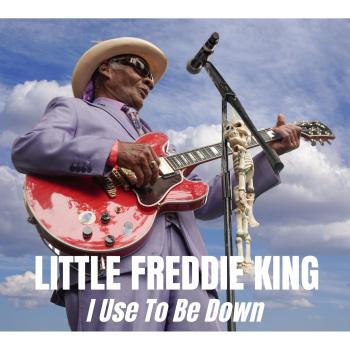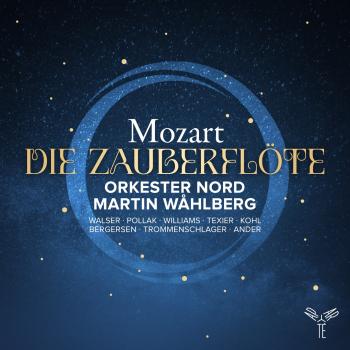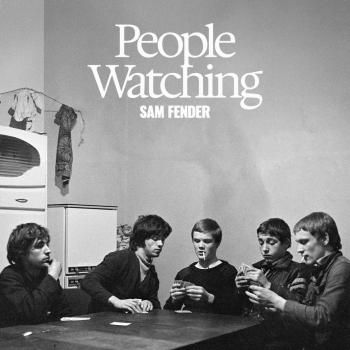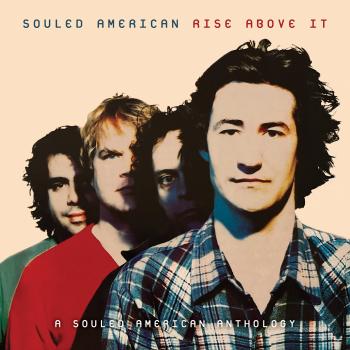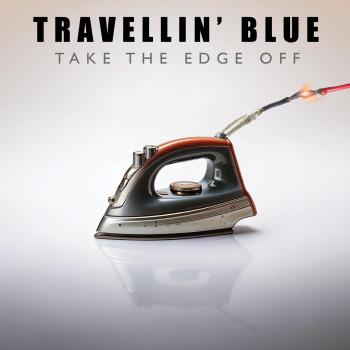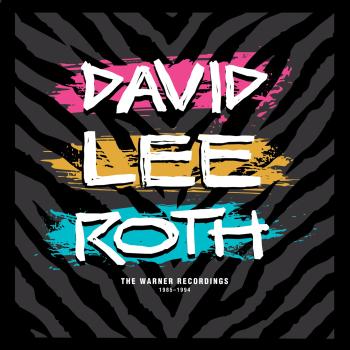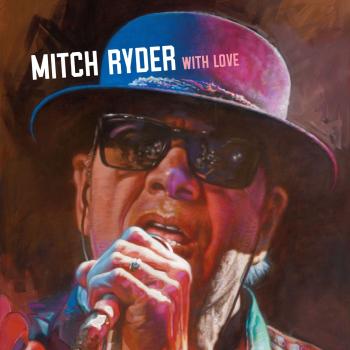
KIWANUKA Michael Kiwanuka
Album info
Album-Release:
2019
HRA-Release:
01.11.2019
Album including Album cover
I`m sorry!
Dear HIGHRESAUDIO Visitor,
due to territorial constraints and also different releases dates in each country you currently can`t purchase this album. We are updating our release dates twice a week. So, please feel free to check from time-to-time, if the album is available for your country.
We suggest, that you bookmark the album and use our Short List function.
Thank you for your understanding and patience.
Yours sincerely, HIGHRESAUDIO
- 1 You Ain't The Problem 04:09
- 2 Rolling 02:51
- 3 I've Been Dazed 04:25
- 4 Piano Joint (This Kind Of Love) (Intro) 02:18
- 5 Piano Joint (This Kind Of Love) 03:51
- 6 Another Human Being 01:51
- 7 Living In Denial 03:31
- 8 Hero (Intro) 01:20
- 9 Hero 03:19
- 10 Hard To Say Goodbye 07:05
- 11 Final Days 04:10
- 12 Interlude (Loving The People) 02:42
- 13 Solid Ground 03:53
- 14 Light 05:48
Info for KIWANUKA
Mit seinem dritten Werk geht der Brite auf eine innere Suche, verneigt sich vor Gil Scott-Heron, Bobby Womack und Otis Redding und gibt am Ende eine deutliche Antwort.
Nachdem Michael Kiwanuka mit seinen ersten beiden Alben "Home Again" und "Love & Hate" und den grandios arrangierten Folk-Soul-Kompositionen das Publikum weltweit begeistert hat, kündigt er in dieser Woche sein drittes Werk an: "KIWANUKA".
Schlicht "KIWANUKA" betitelt, ist das neue Album eine Weiterentwicklung auf verschiedenen Ebenen, die der Sänger, Songwriter und Musiker als "innere Reise" umschreibt, voller Zweifel, Hinterfragung und Suche nach der eigenen Identität. "Das letzte Album kam von einem introspektiven Ort und fühlte sich wie eine Therapie an. Hier geht es mehr darum, mich wohl zu fühlen, so wie ich bin und zu fragen, was ich sagen möchte." Die Fragen werden tiefgründiger – und die Antworten komplexer. Michael Kiwanuka erzählt mit seinen neuen Songs, allen voran dem jetzt veröffentlichten "You Ain’t The Problem", wie er persönlich mit den Unsicherheiten umgeht, die das Leben als Musiker, Mann und Mensch ihm in den Weg schleudert. „Wie kann ich mutig sein und mich selbst und den Zuhörer herausfordern? Es geht eher um triumphale als um melancholische Selbstakzeptanz. Es ist ein Album, das erforscht, was es bedeutet, heute ein Mensch zu sein."
Seine Liebe zum Soul, Folk und Blues ist so allgegenwärtig wie die legendären Größen Gil Scott-Heron, Bobby Womack und Otis Redding, vor denen sich Michael Kiwanuka auf dem Album verneigt. "KIWANUKA" wurde in New York, Los Angeles und London aufgenommen und entstand gemeinsam mit den Produzenten Danger Mouse und Inflo, die schon bei "Love & Hate" mit Michael zusammengearbeitet haben.
Auf die Frage, ob Michael Kiwanuka auch ein Alter Ego hat, mit dem er besonders heterogene Themen aufgreift und ausdrückt, hat Michael Kiwanuka eine deutliche Antwort, die auch die Reise ins Ich komplettiert: "Ich kann nicht dies, das, jenes oder Ziggy Stardust sein. Ich kann nur Michael Kiwanuka sein."
"Sein facettenreicher Soul könnte Kiwanuka schon bald in eine Liga mit Isaac Hayes katapultieren, mit dem er oft verglichen wird." (Stereo)
"Kiwanukas spezielle Mischung aus Soul, Psychedelic Rock und einer dem Electric Jazz entlehnten Klangsprache sucht in der Gegenwart seinesgleichen." (stereoplay)
Michael Kiwanuka
Michael Kiwanuka
Soulful and raw, Londoner Michael Kiwanuka’s critically-acclaimed debut album ‘Home Again’ (April 2012) staked his claim on the list of great British singer-songwriters. As a body of work, Home Again was a genre-defying nod to the heritage names of soul, and reinforced the real strength of young British music talent.
Having taken a deep breath and relaxed into his musical approach, Kiwanuka is back, and has delivered his eagerly anticipated second album – and it packs a powerful punch. If his last album was about returning home again, this is about leaving it behind and stepping out – and finding himself outside his comfort zone. Love & Hate is an outward-looking, drenched with emotional density and rich, soulful production at the helm.
Two years in the making, the British Ugandan Londoner has worked with new talent and created a canvas which sees his vulnerability take centre stage. While previous comparisons have been made to the sensual jazzy folk-soul of Terry Callier or Otis Redding, in reality, this simmering, blues-inflected pop-soul offering, this masterpiece, takes the foundation of those artists and ignites the genre with new energy and thrill.
It’s no surprise that Kiwanuka cites the elaborate, expressive music of Marvin Gaye, Isaac Hayes and John Lennon as influences, and when he speaks of what he loves about his heroes, (“The melancholy and the sheer honesty of Gaye. He doesn’t hide behind his lyrics”) he could so easily be describing himself.
Kiwanuka describes himself as being “obsessed” with the guitar growing up (and tells a great story about how seeing a documentary on Jimi Hendrix as a teen, and realising he was black, opened up something in him). Now, after countless accolades following his debut and providing support Adele on her 2011 live tour, he’s showing us exactly what he’s learned.
“The confessional aspect is cathartic for me. You accept it, once it’s done, it’s out there. That’s the therapeutic nature of it. Now, I’m living in a way where I’m not apologising. My first album I was just worried about everything.”
Musically, this uncompromising fluency of expression means he is as exciting as he’s ever sounded. That, alongside a fresh ear for production, thanks to two new producers, elevated his sound from his debut offering. One of which was a young London-based producer called Inflo, who he co-wrote the lead single, ‘Black Man In A White World’ with, and the other, the mighty Brian Joseph Burton, aka Danger Mouse who was intrigued by Michael’s previous work and asked to work with him. The American producer and songwriter who is best known for his work producing for Gnarls Barkley, Gorillaz and the Black Keys, was ultimately recruited for his aptitude for applying heritage music in a fresh way, and was exactly was Kiwanuka was looking for. It was this new approach being directed by Danger Mouse that allowed Kiwanuka to really revisit himself again.
“The first album was way more technical.” He says. “It was like, ‘OK, we need exactly the right drum sound and an old mic, and the perfect guitar sound’. I love that stuff and I always will, but Brian changed my perspective on it. I realised it the music wasn’t just about deconstructing the instruments, it was to feel.”
It was this team and fresh outlook that re-ignited Kiwanuka’s creative energy after a period of self-doubt, and much of the album was written across London, and out of his comfort zone of LA. He says, “I wanted to give up making music after my first album, but this made me realise that I just needed a new approach to really reflect who I am now.”
Love & Hate is a confident expression of Kiwanuka taking things at his own pace, which at times, brings you to a standstill. One such track is ‘Black Man in A White World’, perhaps Kiwanuka’s most remarkable moment. Inspired by the old southern blues of American blues singer Son House, he takes us with him as he discusses his worldview. The song deals with his issues of race, diasporic identity and anxiety, and is a captivating moment of sonic vulnerability and power. The clipped bass claps punctuate each word and as he sings, “I’m a black man in a white world/I’m in love but I’m still sad/I found peace but I’m not glad” and with that, we get a sense of his duality.
Talking about it, he explains, “That song is about all the sadness and frustrations of childhood, of being one of very few black kids in Muswell Hill, and never feeling like fitting in. It’s about not feeling like I could be a rock star, of always being categorised as jazz, of attending the Royal Academy of Music and seeing no black people on the course, and thinking just how much I was a black man in a white world. “
It is the ability to allow his pain to rise to the surface where Kiwanuka really excels. On ‘Cold Little Heart’, the slow build of tension as he asks the heart wrenching question, “Did you ever want it?” takes us to his raw pain over gentle piano lines and soft hums, as he reinforces that we are all vulnerable in love. It’s a theme he takes further on ‘Final Frame’ where he takes us to the point after committing to a relationship, delving into what happens next.
He explores his spiritual relationship with God on ‘Father’s Child’ as he gently sings, “I’ve been searching for miles and miles/Looking for someone to walk with me”. He likens the ad-libs to “speaking in tongues” and takes images from his childhood at church. “that song is about purpose really, its about walking with someone. And those ad-libs feel like tongues, lyrics that pour out from the heart before the brain has had time to process them.”
On where he finds himself now, he says, “A lot of this album was grappling with the insecurities that I’d learned. The first album was grappling with faith. Here, I’m not so worried about that – I’ve accepted that it comes and goes, and now, I’m left with myself.”
Honest, unabashed, and ambitious, this is Kiwanuka emerging from the emotional cocoon of his first album, and ready to secure his position as one of our most exciting homegrown talents. It’s a new world since his debut, and it seems that it’s his for the taking.
This album contains no booklet.



